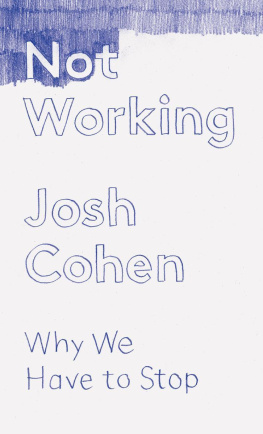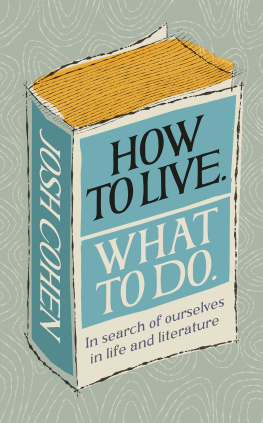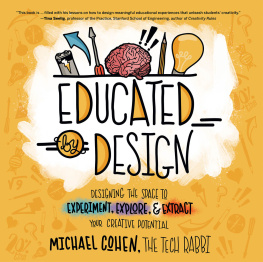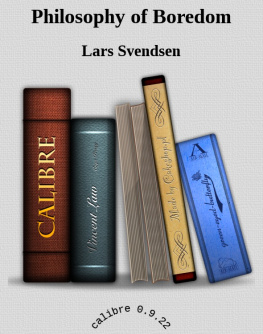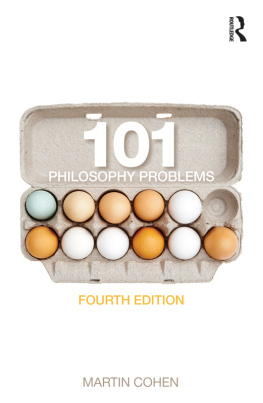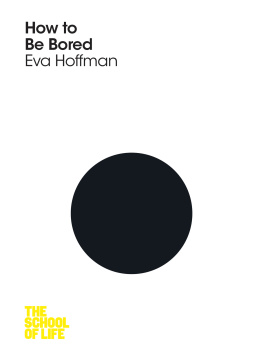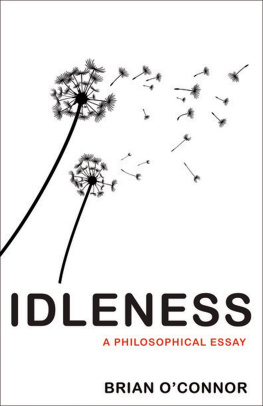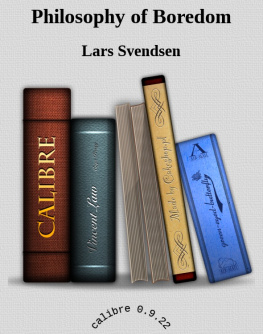Introduction
For over a decade practising as a psychoanalyst, I have started my day before the beginning and finished it after the end of the standard working day, those hours when most people are not working. This often means a first hour immersed in one persons dread and a final hour steeped in anothers exhaustion. Those who come during the time between, meanwhile, are frequently snatching an hour from the office or self-employed work or childcare.
The discontents of work are forever hovering in and around the edges of the session, in the form of stories and complaints about working life, or more indirectly in the intrusive alerts of phones left on vibrate (Sorry, thats probably work), as though the patient, consciously or not, wants me to know something of the demands that follow her even here, in this supposedly protected space.
No doubt this gives me a partial, perhaps exaggerated picture of modern working life as plagued by stress, enervation and fatigue, maladies often compounded by a sense of unfulfilment and meaninglessness, of work as not only arduous but empty, bereft of guiding purpose beyond its simply being there to do.
The psychoanalytic consulting room is just one vantage point from which to view a problem whose scope and reach across our lives today are dauntingly broad. As a proliferation of books and articles attest, our age is witnessing a social, economic and political crisis of work. Overwork is one of its most glaring symptoms. The increasing scarcity of jobs is another. Whole sectors of the labour market, including manufacturing (cars and computers assembled by robots), retail (stores manned entirely by computers) and transport (self-driving cars and trains), are anticipating or already experiencing their eventual full automation. Higher-level cognitive and intellectual work is by no means immune artificial intelligence will take over many of the jobs we had come to think of as irreducibly human, from marketing to investment banking, from preparing legal contracts to teaching maths.
The shrinking labour market impacts those with work as much as those without. Competition for jobs drives down wages, while imposing ever greater demands for efficiency and dedication. An army of potential workers is on hand to replace us if we slip or slide, intensifying pressure on the job and closing down escape routes from it, giving rise to feelings of resignation, despair and entrapment. Many of us, caught in the struggle to maintain a decent standard of living, or simply to survive, find ourselves stuck in, or chasing after, stressful, unfulfilling work.
This impending crisis of work has given rise to the development of a loose network of post-work thinkers and writers addressing the economic, social and political consequences of a future world without work. The idea of a universal basic income (UBI), the provision of a liveable, non-means-tested income for every citizen, is now enjoying support in mainstream as well as radical social policy circles, and has become a central pillar of post-work policy and debate.
But as many post-work authors argue, the questions raised by a post-work future are as existential as they are political and pragmatic. A world in which the place of work is no longer central compels us to ask where lifes meaning lies. What, if not work, makes life worth living? And what kind of beings are we if not fundamentally working beings?
This book is the result of years of reading and thinking about this question. Since childhood, the value of work as the primary meaning and aim of life has never felt self-evident to me. The reason I didnt pursue a career in law, accountancy, finance, corporate management, the civil service or any other respectable middle-class profession, beyond serious doubts about possessing the requisite abilities, was that they all seemed to assume a belief in work as its own justification. Professional life struck me as full of obligations to do things not because they were stimulating or enjoyable, but because those were the responsibilities of the job. That quality of self-denying maturity, it seemed to me, was what real work was, and why I was bent on avoiding it.
The cartoon heroes of my childhood and adolescence Snoopy, Bagpuss, Garfield, Homer Simpson and, later, their live-action successor Lebowski lodged in my consciousness as dissidents from the imperatives of productivity and purpose conveyed to me each day by family members and teachers. They justified my conviction that the window always held more interest than the blackboard, that few teachers lessons could hold their own for long against my daydreams.
Many years later, as adulthood loomed, the lures of daydreaming ran up against the laws of necessity. As I relate in the chapters that follow, literature and later psychoanalysis offered me ways of reconciling the two; I found in them vocations reassuringly hospitable to the refusal of productive activity, ways of making a living in spite of my aversion to the demands of external reality.
But beyond gifting me a working life I could bear and even enjoy, art and psychoanalysis helped me in different ways to question the primary value our culture places on action and purpose. This book is the outcome of that questioning. As our society is confronted increasingly urgently with the question of how to live without work, the time has come to ask whether the essence of our humanity doesnt lie elsewhere than in the fact that we act and produce. This despite the transformative power of human work, and our drive to perform it, in the history of the world. In modern Western culture, our individual day frequently becomes one long attestation to our desire not to work. Many of us, even when working hard, turn in hope and comfort to the prospect of stopping, spending large parts of even our most productive days fidgeting, staring into space, distracted by the window or the computer screen. Distraction is usually a form of disguised lethargy, a way of emptying activity of any content, of stopping without really stopping. It is a form of non-work, but one that tends to induce a state of nervous exhaustion rather than rest.
We often see this impulse not to work as an embarrassing or superfluous accident of our make-up. I am a substantial being in so far as I achieve some definite, objectively useful end, not in how I doodle or invent a private scheme of rhyming slang. But what if we have this wrong? My contention is that not working is at least as fundamental as working to who and what we are.
The first basis for such a claim is hinted at in the fabric of our physical reality. Newtons first law of motion, also known as the law of inertia, states that a body in motion will stay in motion unless acted upon by an unbalanced force. Lurking behind the quest for perpetual motion that has so fascinated scientists since the Middle Ages is the fantasy of overcoming this law, of going on without ever having to stop.
The law of inertia is a cruel master. The ball we throw will hit a wall, the clocks mechanism will run down, our feet will stop dancing: whatever the body in motion, animate or inanimate, infinitesimally small or cosmically large, some or other unbalanced force will sooner or later impede its progress.
In this respect we are physical entities like any other, subject to the burden of our own weight. We can only move so far and do so much before we are forced to stop.
Here lies a clue as to why children are sent into raptures by the sensation of weightlessness. They love bubbles and balloons and being swung in the air, and dream of floating above the earth. They perceive that gravity is a thief of such dreams. Gravity keeps us riveted to the ground and ensures that our bodies can move only by waging a battle against an invisible counterforce. It makes hard work of walking, running, swimming, and an impossibility of flying.

